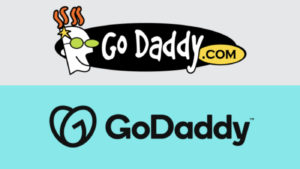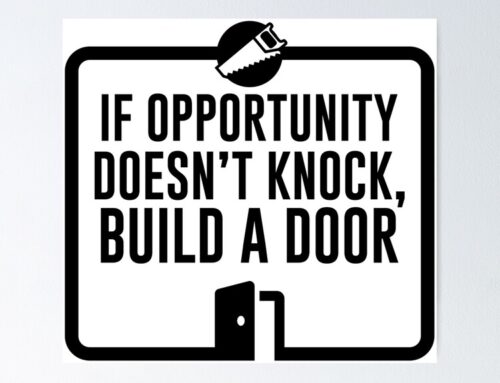Why GoDaddy Rapidly Reworked its Own Marketing to Help Small Businesses Stay Afloat

GoDaddy has seen phenomenal demand for its domain registration and web hosting services in recent months as small firms seek out ways to move their shops and services online. Fresh from launching a campaign to help keep these businesses afloat, the tech giant’s chief marketing officer Fara Howard discusses how this is a strategy that will outlive lockdown.
In May, domain registrar and web hosting company GoDaddy revealed that it now has 19.3 million customers around the globe, up 4.1% year-on-year. Over the past 12 months, the company has seen a revenue bump of 11.5% to reach $792m, thanks to selling domain names, hosting sites and offering booking and payment tools through various partners to small and medium-sized businesses.
Where Covid-19 has created a significant upheaval in the global economy and job markets, it has also led to an uptick in interest from many to start new ventures. In GoDaddy’s most recent earnings call, its chief financial officer Ray Winbourne said investors should expect the business to “lean in on marketing spend” and “attractive customer offers” in response to this in the coming months.
In the meantime, the firm has spotted an opportunity to use its clout and community to help small-to-medium business owners (the lifeblood of its customer base) stay afloat amid the initial shock of the public health crisis, which saw ‘open’ signs around the word flipped to ‘sorry we’re closed’ for the foreseeable future.
“Our core mission as a company and a brand is to enable everyday entrepreneurs – individuals who are so often running a one-person or two-person shop and standing on their own two feet,” explains GoDaddy chief marketing officer Fara Howard.
Historically, this has been GoDaddy’s go-to-market strategy. When Covid-19 struck, though, the business recognised it had a bigger role to play in helping customers and would-be customers navigate the fallout by turning their physical proposition into a digital one.
“In a global pandemic, what these firms might need instead is advice on where to get economic support, resources where they can learn from other small businesses that are thriving in this time.
“We know entrepreneurs lack the time, and often resources, they need to run their business and in the face of a global pandemic it’s become even harder for them.”
Building ‘Open We Stand’
After a brainstorm, these insights led to the launch of ‘Open We Stand’ – an ongoing initiative that has seen the brand offer support to small business owners navigating these challenging times via special offers on services and tools, expert advice, and a community for entrepreneurs to share insights and experiences with one another.
Anchored by an initial national ad campaign which directed companies to resources on the official site, the movement has gained backing from 50 other brands such as Salesforce, Uber, Adobe, Slack and more. All of these partners have made a corporate pledge to help small companies connect with their customers in some way throughout the pandemic.
“Yes it’s a marketing campaign, but it’s ultimately a rallying cry from us to say ‘you can stay open and we can help you’,” Howard told The Drum’s executive editor Stephen Lepitak, during a session at the ongoing virtual Can-Do Festival.
“When we put this campaign into market, we found that customers were calling up and talking to our guides about how to get help. It was incredibly clear that there was an increased demand for our products and services.”
The movement has been helping all variety of small businesses – from Cobe Surf Shop in Portland to London chocolatiers Knoops Chocolate – continue to serve customers in lockdown
Though stores, cafes and offices around the globe are tentatively reopening as governments loosen lockdown to varying degrees, the e-commerce’s boom is set to rumble on. Kantar predicts that e-commerce will further outperform retail in the year ahead, with 32% of households saying they’ve increased or significantly increased their e-commerce spend in the pandemic period and 33% believe their future online purchases will increase.
For GoDaddy’s part, e-commerce has seen an uptick of 40% on its platforms. In line with this, GoDaddy (and its partners) are committed to continuing growing the ‘Open We Stand’ resources and community for “as long as necessary,” Howard says.
On the tech side, the brand has been allowing small firms to easier integrate their website with platforms like Amazon and Etsy so they can be across a “myriad” of marketplaces.
“Selling is super important for our customers, but equally so is being able to stay afloat, so we’ve also introduced new tools that let them integrate the option to buy gift cards.
“We partnered with GoFundMe to allow firms to solicit support from people who love their business during this hard time.
“Wrapping features around the product that are highly pertinent to what’s going on in the world right now has been a huge focus for us.”
Her advice to other marketers looking to realign their messaging amid the pandemic?
“If you have a powerful mission that your employees fully believe in, then your team will lean in and accomplish herculean things,” she says, pointing to the fact that ‘Open We Stand’ took less than 18 days from conception to launch.
“We built something from our homes, we weren’t out there with cameras. Never underestimate the power of your team when they’re rallied around a super important mission – because if that’s the case they will scale mountains for your customer.”
Howard spoke with The Drum’s executive editor Stephen Lepitak as part of The Drum’s Can-Do Festival, an online event celebrating the positive energy, innovation and creative thinking that can make the marketing community such a powerful force for good.
Article by Rebecca Stewart at The Drum
________________________________________________________

206-391-5682
i2i@i2idirectmarketing.com
www.i2idirectmarketing.com
“…all deliveries GPS tracked…”




